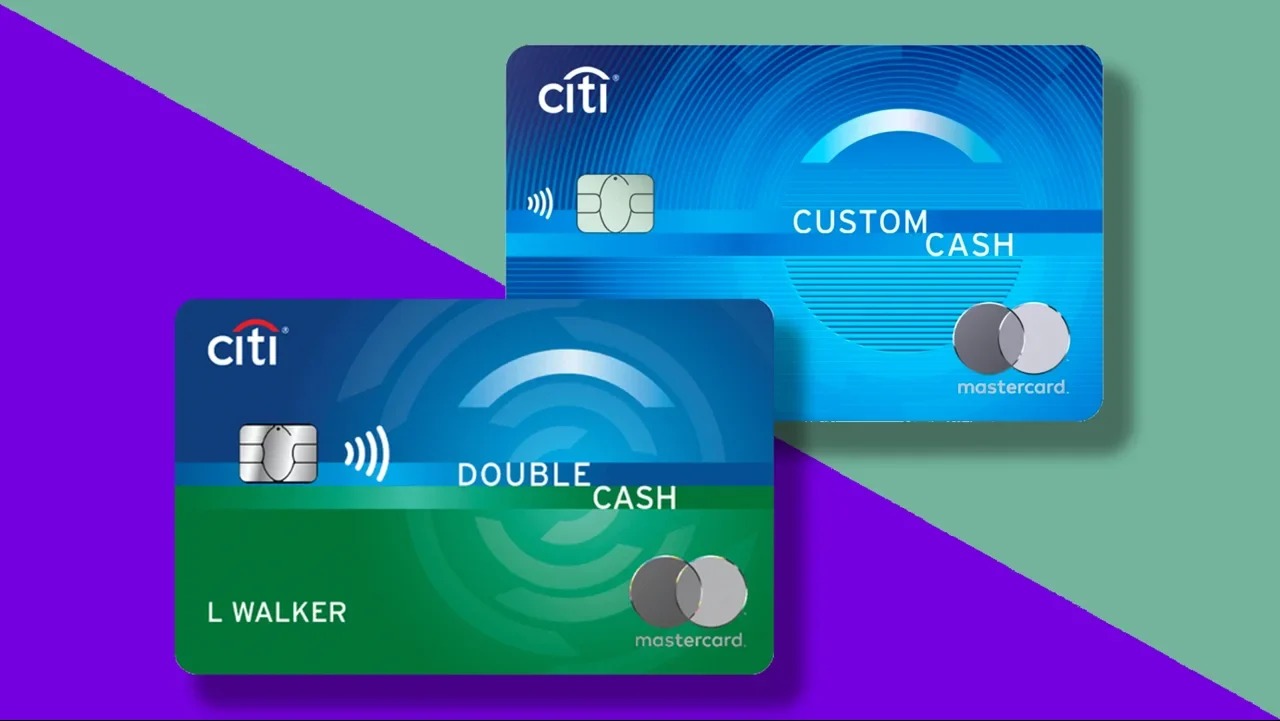Home>Finance>How To Get A Business Checking Account With Bad Credit


Finance
How To Get A Business Checking Account With Bad Credit
Published: October 28, 2023
Looking for a business checking account but have bad credit? Learn how to get one and manage your finances with our expert tips in Finance.
(Many of the links in this article redirect to a specific reviewed product. Your purchase of these products through affiliate links helps to generate commission for LiveWell, at no extra cost. Learn more)
Table of Contents
- Introduction
- Understanding Business Checking Accounts
- The Impact of Bad Credit on Business Checking Account Applications
- Steps to Get a Business Checking Account with Bad Credit
- Assess your credit situation
- Research financial institutions and their requirements
- Find a suitable financial institution for your needs
- Prepare necessary documentation
- Provide explanations for your bad credit
- Consider alternatives such as second-chance accounts
- Build a relationship with the bank
- Improve your credit for future banking needs
- Conclusion
Introduction
Opening a business checking account is a vital step for any business owner, as it helps separate personal and business finances, facilitates smooth financial transactions, and provides access to essential banking services. However, applying for a business checking account can be challenging if you have bad credit.
Bad credit can be a result of past financial mismanagement or unexpected circumstances that caused a temporary dip in creditworthiness. Regardless of the reasons behind it, bad credit can make it difficult to secure a business checking account with traditional financial institutions.
While having bad credit may present obstacles, it does not mean you are completely disqualified from getting a business checking account. There are steps you can take and alternative options you can explore to increase your chances of being approved, even with a less-than-perfect credit history.
In this article, we will explore the impact of bad credit on business checking account applications and provide you with practical steps to help you navigate the process. By following these guidelines, you can improve your chances of getting a business checking account and regain control of your business finances.
Understanding Business Checking Accounts
A business checking account is a specialized bank account specifically designed for business entities. It serves as a central hub to manage and track business-related financial transactions, such as paying suppliers, receiving payments from customers, and handling payroll expenses. As a business owner, having a separate business checking account is crucial for several reasons:
- Separation of personal and business finances: By keeping your personal and business finances separate, you can maintain clear financial records and simplify your accounting processes.
- Professional image: Using a business checking account adds credibility and professionalism to your business by allowing clients and partners to make payments directly to your business name.
- Access to essential banking services: Business checking accounts provide access to a range of banking services tailored to meet the needs of businesses, such as merchant services, business credit cards, and online banking.
Before opening a business checking account, it’s important to understand the different types of accounts available and their associated features. Common types of business checking accounts include:
- Basic Business Checking: This type of account is ideal for small businesses with minimal transaction needs. It usually offers a set number of free transactions and limited features.
- Business Interest Checking: If you maintain higher balances in your account, you may consider a business interest checking account, which allows you to earn interest on your deposited funds.
- Analysis Business Checking: This account is suitable for larger businesses with high transaction volumes. It offers detailed account analysis to help manage cash flow and expenses.
- Business Money Market: Business money market accounts combine features of a checking account and a savings account. They typically offer higher interest rates than traditional checking accounts.
- Online Business Checking: Online business checking accounts are fully digital and allow you to manage your account online without the need for physical branches.
Understanding the different types of business checking accounts available will help you choose the right account that aligns with your business needs and financial goals. Now, let’s explore how bad credit can impact your business checking account applications.
The Impact of Bad Credit on Business Checking Account Applications
Your credit history plays a significant role in the financial decisions made by banks and other financial institutions. When you apply for a business checking account, the bank will typically run a credit check to assess your creditworthiness. Your credit score and history provide them with insights into your financial responsibility and ability to manage debt.
If you have bad credit, it can negatively impact your chances of getting approved for a business checking account in several ways:
- Denial of Application: Some banks have strict policies regarding applicants with bad credit. They may deny your application outright, considering it too risky to extend banking services to someone with a history of financial mismanagement.
- Limited Account Features: Even if you manage to get approved for a business checking account with bad credit, the bank may impose limitations on your account. This could include higher fees, lower transaction limits, or restricted access to certain services.
- Higher Fees: Financial institutions often charge higher fees for accounts held by individuals with bad credit. These fees can add up and eat into your business’s finances, making it more challenging to manage your cash flow effectively.
- Higher Minimum Balance Requirements: Banks may require a higher minimum balance for business checking accounts held by individuals with bad credit. This can tie up more of your business’s funds, limiting your cash liquidity.
It’s important to note that different financial institutions have varying criteria and policies regarding bad credit. While some may be more lenient and offer options tailored for businesses with bad credit, others may have stricter requirements.
Having bad credit does not necessarily mean you will be automatically denied a business checking account. However, it does mean you need to approach the application process strategically and take certain steps to increase your chances of approval. In the next section, we will discuss the steps you can take to successfully obtain a business checking account, even with bad credit.
Steps to Get a Business Checking Account with Bad Credit
While bad credit may present challenges, it is still possible to secure a business checking account with strategic planning and careful consideration. Follow these steps to increase your chances of getting approved:
- Assess your credit situation: Begin by reviewing your credit report and understanding the factors contributing to your bad credit. Look for any errors or inaccuracies that can be disputed and potentially improve your credit score.
- Research financial institutions and their requirements: Different banks have varying criteria for opening a business checking account. Look for financial institutions that are known to be more flexible with businesses with bad credit. Research their specific requirements and eligibility criteria.
- Find a suitable financial institution for your needs: Choose a bank or credit union that offers business checking accounts suitable for your business size and requirements. Consider factors such as fees, transaction limits, online banking capabilities, and customer service.
- Prepare necessary documentation: Gather all the required documents to open a business checking account, including your business registration documents, EIN (Employer Identification Number), proof of address, valid identification, and any additional requirements specified by the financial institution.
- Provide explanations for your bad credit: When filling out the application or speaking with a representative, be upfront about your bad credit and provide explanations for any negative marks on your credit report. This demonstrates your willingness to be transparent and can help build trust with the bank.
- Consider alternatives such as second-chance accounts: Some financial institutions offer second-chance accounts specifically designed for individuals with bad credit. These accounts may have certain restrictions or higher fees, but they can be a stepping stone to rebuilding your financial standing.
- Build a relationship with the bank: If you are approved for a business checking account, take steps to build a positive relationship with the bank. Maintain a healthy account balance, make timely payments, and engage with the bank’s services. This can improve your credibility and potentially lead to better banking opportunities in the future.
- Improve your credit for future banking needs: While working on getting a business checking account, focus on improving your credit score for future banking needs. Make consistent, on-time payments, manage your debt responsibly, and practice good financial habits.
Remember, each financial institution has its own processes and criteria, so it is crucial to do thorough research and consider seeking professional advice if needed. By following these steps, you can increase your chances of securing a business checking account and take control of your business finances, even with bad credit.
Assess your credit situation
The first step in obtaining a business checking account with bad credit is to assess your current credit situation. This involves reviewing your credit report and understanding the factors that have contributed to your bad credit. By gaining a clear understanding of your credit history, you can better address any issues and develop a plan moving forward.
Obtain a copy of your credit report from the major credit bureaus—Equifax, Experian, and TransUnion. You are entitled to a free copy of your credit report from each bureau once a year. Review your report carefully, looking for any errors, discrepancies, or outdated information.
If you notice any mistakes, such as inaccurate late payments or accounts that don’t belong to you, you can dispute them with the credit bureaus. Correcting these errors can help improve your credit score.
In addition to addressing errors, take note of any negative factors contributing to your bad credit. This could include late payments, high credit utilization, or bankruptcy. Understanding the specific causes of your bad credit will help you develop a plan to mitigate these factors and improve your creditworthiness.
Keep in mind that improving your credit score takes time and consistent effort. However, by proactively addressing any inaccuracies and taking steps to improve your financial habits, you can gradually rebuild your credit and increase your chances of being approved for a business checking account.
It’s also important to be realistic about the impact of bad credit on your ability to secure a business checking account. While bad credit may present challenges, there are still options available. Research financial institutions that specialize in providing services to businesses with bad credit or consider alternative account types that have more lenient requirements.
Remember, assessing your credit situation is the first step toward taking control of your financial future. By understanding your credit history and working to improve it, you can set yourself up for success in securing a business checking account.
Research financial institutions and their requirements
When you have bad credit, it’s crucial to conduct thorough research on different financial institutions and their requirements for opening a business checking account. Not all banks have the same criteria, and some may be more willing to work with businesses with less-than-perfect credit.
Start by identifying banks or credit unions that have a reputation for being more flexible with businesses that have bad credit. Look for institutions that offer specialized programs or accounts designed for individuals in your situation. These institutions may have specific requirements and account features tailored to businesses with bad credit.
Take the time to explore their websites, read customer reviews, and compare the offerings of different banks. Look for information on their business checking account options, fees, transaction limits, online banking capabilities, and customer support. It’s important to find a financial institution that not only accommodates your credit situation but also meets all your business banking needs.
While researching financial institutions, pay close attention to their minimum requirements for opening a business checking account. Some banks may have stricter guidelines, while others may be more lenient. Consider factors such as minimum deposit requirements, minimum account balance, and any specific documentation they require.
It’s also worth reaching out to the banks directly to inquire about their policies regarding businesses with bad credit. Some institutions may have dedicated representatives or departments that can provide more guidance and information tailored to your situation.
Remember that building a relationship with a bank is not just about opening a business checking account; it’s a long-term partnership. Consider factors beyond just credit requirements, such as the institution’s reputation, customer service quality, and their ability to meet your ongoing needs as your business grows.
By conducting thorough research and understanding the requirements of different financial institutions, you can make an informed decision about which bank is the best fit for your business checking account needs. This strategic approach will increase your chances of finding an institution that is more willing to work with your bad credit situation and provide the necessary banking services for your business.
Find a suitable financial institution for your needs
When you have bad credit, finding a suitable financial institution for your business checking account becomes especially important. Not all banks have the same policies when it comes to businesses with less-than-ideal credit, so it’s crucial to find a bank that can meet your specific needs.
Consider the following factors when searching for a suitable financial institution:
Flexibility with bad credit: Look for banks or credit unions that have a reputation for being more lenient towards businesses with bad credit. These institutions may have specialized programs or accounts designed to accommodate your credit situation. Research their eligibility requirements and determine if you meet the criteria.
Account features: Assess your business needs and ensure that the financial institution you choose offers the necessary features and services for your business checking account. Consider factors such as online banking capabilities, mobile banking apps, check deposit options, and the ability to make electronic payments.
Fees and charges: Examine the fee structure of the financial institution and compare it with other options. Consider both transaction fees and monthly maintenance fees. Be aware that some institutions may charge higher fees for businesses with bad credit, so it’s important to understand the potential costs associated with maintaining the account.
Customer support: Evaluate the quality of customer support provided by the financial institution. Consider factors such as accessibility, responsiveness, and the availability of dedicated representatives who can assist you with any account-related issues or concerns.
Branch and ATM accessibility: Determine the availability of branches and ATMs in your area. If in-person banking is important to you, look for a financial institution with physical branch locations convenient for your business operations. Additionally, consider the accessibility of ATMs for easy cash withdrawals and deposits.
Reputation: Research the reputation of the financial institution by reading customer reviews and testimonials. Look for feedback regarding their services, reliability, and overall customer satisfaction. A reputable institution with positive reviews can provide greater peace of mind.
By carefully evaluating these factors, you can find a financial institution that aligns with your needs and is more likely to offer a business checking account despite your bad credit. Remember, your goal is to find a bank that not only provides the necessary banking services but also understands your unique financial situation and is willing to work with you to support your business growth.
Prepare necessary documentation
When applying for a business checking account, it’s important to gather all the necessary documentation ahead of time. By being well-prepared, you can streamline the application process and increase your chances of being approved, even with bad credit. Here are the essential documents you’ll typically need to open a business checking account:
Business registration documents: Provide legal proof of your business’s existence, such as your articles of incorporation, certificate of formation, or partnership agreement. These documents demonstrate that your business is legally recognized and registered.
EIN (Employer Identification Number): Obtain an EIN from the IRS if you haven’t already. This unique identification number is assigned to your business and will be required when opening a business checking account.
Proof of address: Provide documentation that verifies your business address, such as a utility bill or lease agreement. The financial institution needs to confirm the physical location of your business.
Valid identification: As the account holder, you’ll need to provide valid identification, such as a driver’s license, passport, or state ID. This helps establish your identity and confirms that you’re authorized to open the account on behalf of the business.
Business license: If your business requires a license to operate, such as professional licenses or permits, you may need to provide proof of these licenses.
Financial statements: Depending on the financial institution, you may be required to provide financial statements, such as profit and loss statements or balance sheets, to give the bank a better understanding of your business’s financial health.
Business plan: Some banks may require a business plan that outlines your company’s objectives, financial projections, and growth strategies. This helps the institution assess the viability and stability of your business.
Be meticulous in gathering these documents to ensure you have everything needed for the application process. Keep copies of all the documents for your records, as you may need to refer to them in the future for other financial purposes.
Remember that different financial institutions may have varying document requirements. It’s essential to check with the specific bank or credit union where you plan to open your business checking account to confirm the exact documents they require.
By preparing and organizing the necessary documentation in advance, you can demonstrate your professionalism and readiness to establish a business checking account, increasing your chances of success, even with bad credit.
Provide explanations for your bad credit
When applying for a business checking account with bad credit, it’s important to be transparent about your credit history and provide explanations for any negative marks on your credit report. This demonstrates your willingness to take responsibility for past financial difficulties and helps build trust with the financial institution. Here are some tips for providing explanations for your bad credit:
1. Be honest: Start by being honest and straightforward about your credit history. Clearly state any incidents or periods of financial hardship that led to negative marks on your credit report. Honesty goes a long way in establishing trust.
2. Provide context: Share the circumstances surrounding your bad credit. Explain any extenuating circumstances, such as a medical emergency, divorce, or a downturn in the economy, that impacted your finances. Providing context can help the bank understand the reasons behind your credit issues.
3. Showcase improvement: Emphasize the steps you’ve taken to improve your financial situation. If you’ve made consistent, on-time payments, paid off debts, or implemented better financial management practices, highlight these positive changes. Demonstrating your commitment to improving your credit shows the bank that you are taking active measures to rectify past issues.
4. Share your business’s success: If your business has experienced growth, profitability, or other successes despite your bad credit, share this information with the financial institution. Providing evidence of your business’s financial stability and potential can help offset concerns about your personal credit history.
5. Offer references or recommendations: If possible, provide references or recommendations from other financial institutions, business partners, or vendors with whom you have a positive relationship. These references can vouch for your trustworthiness and financial responsibility, further supporting your case.
6. Seek professional advice if necessary: If you’re unsure about how to best explain your bad credit or need guidance on the application process, consider consulting with a financial advisor or accountant. These professionals can provide insights and help craft a compelling explanation for your credit situation.
Remember to present your explanations in a clear and concise manner. Craft a written statement or be prepared to discuss your situation in person when speaking with the bank representative. Being prepared and proactive in explaining your bad credit can help mitigate concerns and increase your chances of being approved for a business checking account.
Consider alternatives such as second-chance accounts
If you are facing challenges in obtaining a business checking account with bad credit, one option worth exploring is a second-chance account. Second-chance accounts are specialized banking solutions designed for individuals or businesses with poor credit histories. These accounts offer an alternative to traditional business checking accounts and provide an opportunity to rebuild your financial reputation. Here are some key points to consider:
Understanding second-chance accounts: Second-chance accounts are specifically tailored for those who have been denied a regular business checking account due to bad credit. These accounts typically come with certain restrictions and requirements that allow financial institutions to provide banking services to individuals who might not meet the criteria for standard accounts.
Features and limitations: Second-chance accounts may have restrictions such as higher fees, lower transaction limits, or limited access to certain services. While these accounts may not offer all the features of a regular business checking account, they do provide an opportunity to manage your business finances and demonstrate responsible banking behavior.
Opportunity for improvement: Opening a second-chance account allows you to establish a financial track record with the bank. By managing the account responsibly, making regular deposits, and maintaining a positive balance, you can demonstrate your commitment to rebuilding your financial standing and potentially transition to a regular business checking account in the future.
Research financial institutions: Not all banks offer second-chance accounts, so it’s important to research financial institutions that specialize in providing these options. Look for banks that have experience working with individuals or businesses with bad credit and have a track record of helping customers improve their financial situations.
Consider the long-term plan: While a second-chance account can provide immediate banking solutions for your business, it’s essential to have a long-term plan for rebuilding your credit. Work on improving your credit score by making timely payments, reducing debt, and practicing good financial habits. Over time, as your credit improves, you may be eligible for more favorable account options.
Monitor progress and reassess: Regularly monitor your progress and reassess your financial situation. Once you’ve made significant improvements to your credit, consider reapplying for a traditional business checking account with the same or different financial institution.
Remember, a second-chance account is an interim solution that provides an opportunity to rebuild your credit and manage your business finances. It’s crucial to use this opportunity wisely, demonstrating financial responsibility and taking steps towards improving your credit for long-term banking needs.
Build a relationship with the bank
Building a strong relationship with the bank is crucial when you have bad credit and are seeking a business checking account. A positive relationship can help you overcome initial hurdles, gain trust from the financial institution, and potentially open doors to better banking opportunities in the future. Here are some steps you can take to foster a strong partnership:
Be proactive and engaged: Actively engage with the bank’s services and demonstrate your commitment to managing your business finances. Regularly check your account, make timely deposits, and monitor your transactions. By showing that you are actively involved, you establish yourself as a responsible account holder.
Communicate openly: Maintain open lines of communication with the bank. If you encounter any issues or changes in your business situation, inform the bank promptly. Communication builds trust and shows your willingness to work together in overcoming challenges.
Utilize additional services: Take advantage of other services offered by the bank that align with your business needs. For example, explore merchant services, business credit cards, or lines of credit that can help you manage your finances more effectively. Utilizing these services demonstrates your commitment to the bank and builds a stronger relationship.
Attend banking-related events: Participate in banking events or seminars organized by the financial institution. These events provide opportunities to network with bank representatives, learn about additional services, and establish personal connections. Being present and engaged helps to differentiate yourself and strengthens the relationship with the bank.
Seek guidance when needed: If you are unsure about certain banking processes or need assistance, don’t hesitate to reach out to the bank’s customer service or designated representatives. They can provide guidance and support, ensuring that you are making the most of your business checking account.
Demonstrate financial responsibility: Manage your business account carefully by maintaining a healthy account balance, avoiding overdrafts, and making payments on time. Responsible financial behavior proves your creditworthiness and shows the bank that you are actively working to overcome past credit challenges.
Regularly review your options: As your business grows and your credit improves, periodically review your banking options to assess if there are better account options available to you. Keep an eye out for promotions or upgraded account offerings that may be suitable for your evolving financial needs.
Remember, building a strong relationship with the bank takes time and effort. By being proactive, demonstrating financial responsibility, and engaging with the bank’s services, you can establish a positive rapport and potentially unlock greater banking opportunities in the future.
Improve your credit for future banking needs
While you may have successfully obtained a business checking account with bad credit, it’s important to focus on improving your credit for future banking needs. A better credit score opens doors to more favorable banking options and benefits your overall financial health. Here are some steps to help you improve your credit:
Pay bills on time: Make it a priority to pay all your bills, including business and personal expenses, on time. Late or missed payments can negatively impact your credit score. Set up reminders or automatic payments to ensure you don’t miss any due dates.
Reduce outstanding debts: Work on paying down your existing debts, including credit card balances and loans. Reducing your debt-to-income ratio improves your credit utilization and demonstrates responsible financial management.
Monitor your credit report: Regularly check your credit report for errors or inaccuracies. If you find any discrepancies, dispute them with the credit bureaus to have them corrected promptly. Monitoring your report also allows you to track your progress and identify areas for improvement.
Build positive credit history: Establishing a positive credit history is crucial. If possible, open a small business credit card or secure a small loan and make regular, on-time payments. This demonstrates your ability to manage credit responsibly and helps boost your creditworthiness.
Diversify your credit: Having a mix of credit types, such as loans and credit cards, can strengthen your credit profile. However, be cautious and only take on new credit if necessary and manageable within your financial means.
Keep credit utilization low: Aim to keep your credit card balances below the recommended utilization ratio, which is typically 30% or lower. Paying off balances in full each month shows responsible credit usage and improves your creditworthiness.
Manage inquiries: Limit your credit applications to avoid excessive inquiries on your credit report. Multiple inquiries within a short period can raise concerns about your financial stability.
Practice good financial habits: Adopting good financial habits, such as budgeting, saving, and regularly reviewing your financial situation, can help you maintain healthy financial practices and avoid future credit pitfalls.
Work with a credit counselor: If you are struggling to manage your credit and need guidance, consider working with a reputable credit counseling agency. They can provide personalized advice and strategies to help you improve your credit score.
Remember, improving your credit takes time and effort. Patience and consistency are key. By following these steps and practicing responsible financial habits, you can gradually rebuild your credit, opening up more banking opportunities for your business in the future.
Conclusion
Obtaining a business checking account with bad credit may present challenges, but it is not impossible. By following the steps outlined in this guide, you can increase your chances of securing a business checking account that meets your needs and helps you manage your business finances effectively.
It is important to assess your credit situation, research financial institutions that are more lenient towards businesses with bad credit, and gather all the necessary documentation. Providing explanations for your bad credit and considering alternatives like second-chance accounts can also be beneficial in obtaining the account you need.
Building a strong relationship with the bank is crucial. By demonstrating financial responsibility and engaging with the bank’s services, you can establish trust and potentially access better banking options in the future. Additionally, focusing on improving your credit for future banking needs is essential, as it opens doors to more favorable account options and benefits your overall financial health.
Remember, while bad credit may pose initial obstacles, it does not define your financial future. With patience, perseverance, and strategic planning, you can overcome these challenges and regain control of your business finances. Stay committed to improving your credit, seek professional advice if needed, and continue to take proactive steps towards your financial goals.
Obtaining a business checking account is an important milestone for your business. By navigating the process with a focus on improving your credit, you can position your business for future growth and success.














